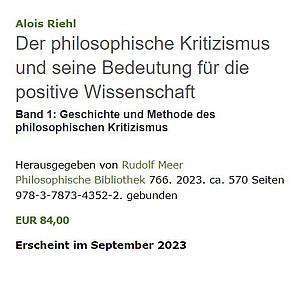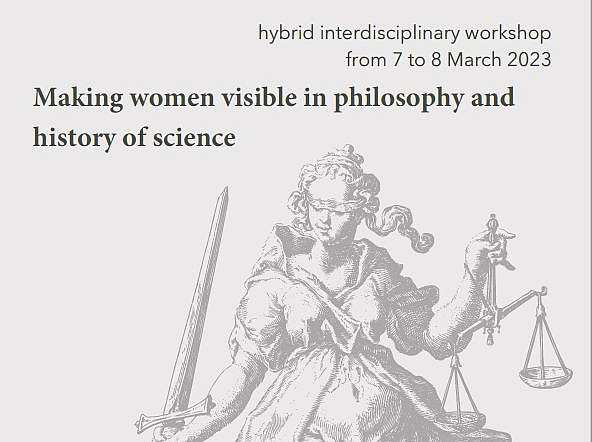Our involvement in current projects
Elise-Richter Project "Critical History of Genetics and its Application in CEE".
Project leader: PD Victoria SHMIDT (2023-2027).
Like other sciences, genetics produces both positive and negative outcomes. Any hypothesis regarding the genetic factors of health and disease shapes our vision of norms and pathology what feeds our idea of otherness. Each of the methods aimed at timely indicating hereditary diseases turns in improper medical surveillance and even oppression. The duality of genetics is reflected in a wide range of attitudes that influence not only individual choices but also politics and cultures when it comes to one of the fundamentals of human life: reproductive behavior. My project brings ongoing revision of achievements and falls of genetics into analytical lens of reproductive injustice – institutionalized and legitimized coercion to give birth (by restricting access to contraception) and not to give birth (through involvement in measures to prevent the birth of a child with a congenital disorder).
I retell the history of genetics to explain the ambivalence of scientific knowledge about human heredity as formed by two interrelated and mutually contested flows, multiple and obviously never-ending attempts to find the medical routs to human perfection on the one hand, and various strategies targeted with negating the idea of perfection with the help of interdisciplinary revision of the scientific progress in genetics on the other. The progress of genetics goes hand in hand with its historicization, and this project works through history of genetics and its meta-history or history of history. In the global history of medicine, the ambivalence of progress in genetics challenges previously established approaches to interpreting the impact of medical science on population politics as a part of public security.
Historicizing genetics in Central and Eastern European (CEE) countries is one of the fundamental prerequisites for developing this narration. The CEE countries have gone through different historical moments in which the strengthening of their geopolitical role as the region between West and East, or the capitalist and socialist parts of the world has brought medical expertise, including genetics, into line with the global security agenda. After World War I, and the increased role in preventing pandemics, prominent eugenicists in their respective nation states, contributed to the medicalization of particular social groups as carriers of infectious diseases. CEE eugenicists participated in preparing the UNESCO Statements on Race in the early 1950s, and after the Cuban Missile Crisis, socialist geneticists immediately intervened in the agenda of global population policy aimed at the survival of humanity in the face of looming nuclear catastrophe.
The collapse of the socialism resulted in the liberalization of medicine, including the engagement of post-socialist medical genetics with the global fertility market. Today, the deep involvement of CEE countries in the multifaceted political crisis caused by the Russian invasion of Ukraine, including the widespread reproduction of racial hierarchies in migration politics, makes the call for revising the global history of genetics even more pressing. In the end, it is essential for the historicization of CEE itself. The contemporary multiplicity of reproductive injustice in CEE countries calls for historicization through the lens of genetically informed argument. This project solves this task.

I work on the history of genetics to explain the ambivalence of scientific knowledge about human heredity, which consists of two interrelated and mutually controversial currents. On the one hand, I follow multiple and apparently never-ending attempts to find the medical path to human perfection. On the other hand, I examine various strategies aimed at negating the idea of perfection with the help of an interdisciplinary revision of scientific progress in genetics. The progress of genetics is accompanied by its historicization, and this project is concerned with the history of genetics and its metahistory. In the global history of medicine, the ambivalence of progress in genetics challenges previously established approaches to interpreting the influence of medical science on population policy as part of public safety. The historicization of genetics in Central and Eastern European (CEE) countries is one of the basic premises for the development of this narrative.
CEE countries have experienced various historical moments in which the strengthening of their geopolitical role as a region has led to the alignment of medical expertise, including genetics, with the global security agenda. Following World War I and the increasing role in pandemic prevention, prominent eugenicists in their respective nation-states contributed to the medicalization of certain social groups as vectors of infectious diseases. Eugenicists from Central and Eastern Europe participated in the drafting of UNESCO declarations on race in the early 1950s, and after the Cuban Missile Crisis, socialist geneticists immediately intervened in the agenda of global population policy aimed at human survival in the face of impending nuclear catastrophe.
The collapse of socialism led to the liberalization of medicine, including the incorporation of post-socialist medical genetics into the global fertility market. The deep involvement of CEE countries in the multi-layered political crisis caused by the Russian invasion of Ukraine, including the widespread reproduction of racial hierarchies in migration policies, makes the call for a revision of the global history of genetics even more urgent today. Ultimately, it is essential to the historicization of CEE itself. The current multiplicity of reproductive injustices in CEE countries requires historicization through the lens of a genetically grounded argument. This project solves that task.
"The Philosophical Criticism" Edition Project
With the new edition of Alois Riehl's three-volume work "Der Philosophische Kritizismus und seine Bedeutung für die positive Wissenschaft" (Philosophical Criticism and its Significance for Positive Science), a text that has been out of print for almost 100 years and is significant in the history of philosophy is made accessible again. In the first volume (1876), Riehl reconstructs the history of criticalism and places his own critical realism in the ranks of thinkers such as Locke, Hume, and Kant, as well as Wolff, Lambert, and Tetens. At the turn of the century, Riehl was one of the best-connected German-language scholars - but his influence extended beyond, to England, the United States, Russia, and Japan, among other places. He was the editor of the influential "Vierteljahresschrift für wissenschaftliche Philosophie," established one of Germany's first psychological laboratories in Halle with the help of Wilhelm Wundt, and was instrumental in establishing the term "philosophy of science" as it is still used today. In Volume 1, Riehl sketches a history of criticalism and positions his own philosophical approach within it. The most important point of reference is Kant's "Critique of Pure Reason," whose empiricist sources and systematic doctrinal pieces he reconstructs. The first volume is thus to be read as a book about Kant and his prehistory, and at the same time as a systematic examination of critical philosophy. Thus the book occupies a unique position in the history of philosophy and science and still represents a highly topical attempt at an "Integrated History and Philosophy of Science."

